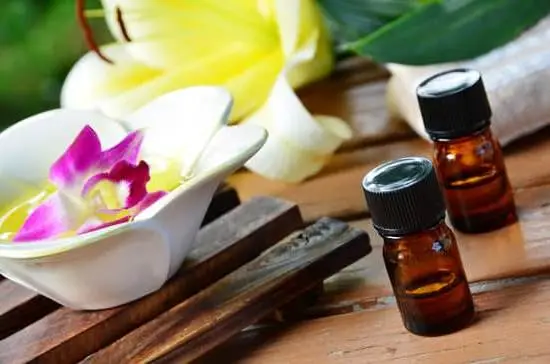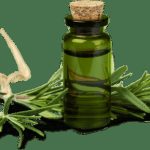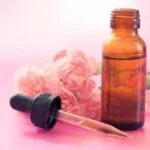Are homeopathic remedies another form of aromatherapy? The relationship between these two alternative healthcare approaches is a topic of growing interest and debate. Homeopathic remedies and aromatherapy both involve the use of natural substances to promote wellness, but they operate on different principles and practices.
In this article, we will explore the concept of homeopathic remedies and aromatherapy, delving into their origins, principles, and potential overlapping benefits. We will also examine the scientific evidence for their efficacy to gain a deeper understanding of these alternative healing methods.
Homeopathic remedies are based on the principle of “like cures like,” where highly diluted substances that cause symptoms in a healthy person are used to treat similar symptoms in an ailing individual. Aromatherapy, on the other hand, utilizes essential oils extracted from plants to enhance physical and psychological well-being through inhalation or topical application. While both approaches aim to promote holistic health, they differ in their methods of preparation, administration, and underlying philosophy.
Understanding the concepts of homeopathy and aromatherapy is crucial in appreciating their potential benefits as adjunct therapies. By examining their historical origins and contemporary applications, we can gain insight into how these practices have evolved over time to become popular forms of complementary medicine. In the following sections, we will delve deeper into the principles and practices of each approach before contrasting their fundamental differences and exploring potential overlaps in their uses and benefits.
Understanding Homeopathic Remedies
Homeopathic remedies are based on the principle of “like cures like,” where a substance that produces symptoms in a healthy person is used to stimulate the body’s healing response. This alternative medical practice was developed in the late 18th century by German physician Samuel Hahnemann. Homeopathy is rooted in the belief that the body has the ability to heal itself, and that by using highly diluted substances, known as remedies, it can restore balance and promote well-being.
The practice of homeopathy involves a holistic approach to health, taking into account not only the physical symptoms but also the mental and emotional state of an individual. Homeopaths conduct detailed consultations with patients to understand their overall well-being before prescribing a remedy.
These remedies can be made from various sources such as plants, minerals, and animal products, and are prepared through a process of serial dilution and succussion (vigorous shaking). The aim is to enhance the medicinal properties while minimizing any potential side effects.
Many individuals seek homeopathic treatments for conditions such as allergies, migraines, chronic pain, and stress-related ailments. However, it is important to note that homeopathy remains a controversial practice within the medical community due to its reliance on highly diluted substances with no proven mechanism of action.
| Key Points | Data |
|---|---|
| Principle of homeopathy | “Like cures like” |
| Founder of homeopathy | Samuel Hahnemann |
| Main goal of homeopathy | To stimulate the body’s natural healing processes |
Aromatherapy Explained
Aromatherapy is a holistic healing treatment that uses natural plant extracts to promote health and well-being. The practice dates back to ancient civilizations, where it was used for medicinal purposes, as well as for spiritual rituals.
Aromatherapy involves the use of essential oils, which are extracted from various parts of plants such as flowers, herbs, and fruits. These essential oils are then inhaled or applied to the skin through massages or baths, with the goal of improving a person’s mood or health.
The purpose of aromatherapy is to enhance physical and emotional health. The use of different essential oils can have a variety of effects on the body and mind. For example, some oils are known for their relaxing properties, while others are used for their energizing or uplifting effects.
Aromatherapy can be used to reduce stress, anxiety, and depression, as well as to alleviate symptoms of certain medical conditions such as headaches or insomnia. Additionally, certain essential oils have antibacterial and anti-inflammatory properties, making them useful for treating minor skin irritations or infections.
In recent years, aromatherapy has gained popularity as a complementary therapy in conjunction with traditional medicine. Many healthcare facilities now offer aromatherapy treatments as part of their services. It is important to note that while aromatherapy can have many benefits for overall well-being, it is not intended to replace medical treatment when necessary. As with any alternative therapy, it is advisable to consult with a qualified healthcare practitioner before using aromatherapy for specific health concerns.
| Essential Oil | Benefit |
|---|---|
| Lavender | Relaxation |
| Peppermint | Energy boost |
| Chamomile | Anxiety relief |
| Lemon | Mood enhancement |
Origins and History
Homeopathic Remedies
Homeopathy, as a system of alternative medicine, was developed in the late 18th century by German physician Samuel Hahnemann. It is based on the principle of “like cures like,” meaning that a substance that causes symptoms in a healthy person can be used to treat similar symptoms in an ill person. The practice of using homeopathic remedies spread to the United States and other parts of the world, gaining popularity for its holistic approach to healing.
Aromatherapy
Aromatherapy, on the other hand, has a history that dates back thousands of years. Ancient civilizations such as the Egyptians, Greeks, and Romans utilized aromatic plant oils for various purposes, including religious rituals, cosmetics, and medicinal treatments. The term “aromatherapy” itself was coined in the 20th century by French chemist René-Maurice Gattefossé, who studied the healing properties of essential oils after experiencing their therapeutic effects firsthand.
Historical Overlap
While homeopathic remedies and aromatherapy have distinct origins, there is some historical overlap in their development. Both practices draw on ancient knowledge of natural substances and their healing properties. Additionally, they have both evolved over time to incorporate modern scientific research into their respective fields. This shared historical background contributes to the interconnectedness between homeopathic remedies and aromatherapy in terms of their use as alternative forms of medicine.
The historical background of homeopathic remedies and aromatherapy sheds light on their cultural significance and evolution as alternative healing modalities. Understanding this history provides insight into how these practices have gained recognition and acceptance as viable options for individuals seeking natural approaches to health and wellness.
Key Differences
Principles and Practices
Homeopathic remedies are based on the principle that “like cures like,” meaning that a substance that causes symptoms in a healthy person can be used to treat similar symptoms in a sick person. The remedies are prepared through a process of dilution and succussion, with the belief that this enhances the healing properties of the substance.
On the other hand, aromatherapy involves the use of essential oils extracted from plants to promote physical, emotional, and psychological well-being. These oils can be inhaled, applied topically, or even ingested in some cases.
Mode of Administration
One of the fundamental differences between homeopathy and aromatherapy lies in their mode of administration. Homeopathic remedies are typically taken orally in the form of sugar pellets or liquid solutions. They can also be applied topically in creams or ointments for certain skin conditions.
In contrast, aromatherapy primarily involves inhalation or topical application of essential oils. The oils can be diffused into the air using a diffuser, added to bathwater, or applied directly to the skin through massage or other methods.
Therapeutic Focus
Another key difference is their therapeutic focus. Homeopathic remedies aim to stimulate the body’s ability to heal itself by addressing the underlying conditions causing illness. It is based on individualized treatment, with remedies selected based on specific symptoms and constitutional characteristics of each person. On the other hand, aromatherapy focuses on enhancing mood, promoting relaxation, reducing stress, and addressing specific physical ailments through the use of aromatic compounds found in essential oils.
Understanding these fundamental differences helps clarify that while both homeopathic remedies and aromatherapy fall under holistic healing practices, they operate on distinct principles and have different applications for promoting health and well-being.
Similarities and Overlapping Benefits
When exploring the potential overlaps in the use and benefits of homeopathic remedies and aromatherapy, it is important to consider their similarities and how they can complement each other. Here are some key points to consider:
- Natural Healing: Both homeopathic remedies and aromatherapy focus on natural healing methods. Homeopathy uses highly diluted substances derived from plants, animals, or minerals to stimulate the body’s own healing processes. Aromatherapy, on the other hand, harnesses the therapeutic properties of essential oils extracted from plants to promote physical and psychological well-being.
- Holistic Approach: Both practices take a holistic approach to health and wellness. Homeopathy considers the individual as a whole, taking into account physical, emotional, and mental aspects to determine the most suitable remedy for a person’s condition. Similarly, aromatherapy focuses on treating the whole person rather than just addressing specific symptoms, with essential oils used to balance not only physical ailments but also emotional and mental states.
- Individualized Treatment: Both homeopathic remedies and aromatherapy offer personalized treatment. In homeopathy, the selection of a remedy is based on an individual’s unique symptoms and characteristics. Likewise, in aromatherapy, specific essential oils are chosen based on an individual’s needs and preferences.
While there are clear differences between homeopathic remedies and aromatherapy in terms of their methodologies and applications, it is evident that they share common ground when it comes to their natural approach to healing, holistic philosophies, and personalized treatment methods.
In practice, some individuals may choose to incorporate both homeopathic remedies and aromatherapy into their wellness routines for a more comprehensive approach to health. It is important for individuals interested in these alternative therapies to consult with qualified practitioners or healthcare professionals who have expertise in both homeopathy and aromatherapy for guidance on safe and effective use.
Scientific Evidence
When it comes to homeopathic remedies, there is a lack of substantial scientific evidence to support their efficacy. The fundamental concept of homeopathy, which involves highly diluted substances that are believed to trigger the body’s natural healing processes, has been a subject of debate in the medical community. While some studies have shown positive results, many experts argue that these effects can be attributed to a placebo effect rather than the actual properties of the remedies.
On the other hand, aromatherapy has garnered more attention from researchers in recent years, with several studies providing evidence of its potential benefits. Aromatherapy has been found to have a positive impact on mood, anxiety, and certain physical symptoms when used in conjunction with traditional medical treatments. The use of essential oils in aromatherapy has been linked to various therapeutic effects due to their chemical composition and ability to interact with the body’s olfactory system.
Despite the differing levels of scientific evidence supporting homeopathic remedies and aromatherapy, it is essential to approach both practices with an open mind and consider individual experiences alongside research findings. More rigorous scientific studies are needed to further understand and validate the potential benefits of these alternative approaches to health and wellness. As with any complementary or alternative treatment, consulting with a healthcare professional before incorporating homeopathic remedies or aromatherapy into one’s wellness routine is highly recommended.
Conclusion
In conclusion, while homeopathic remedies and aromatherapy share certain similarities in their holistic approach to health and wellness, they are fundamentally distinct practices. Homeopathy is based on the principle of “like cures like” and uses highly diluted substances to stimulate the body’s natural healing processes. On the other hand, aromatherapy utilizes essential oils from plants to improve physical, emotional, and mental well-being through inhalation or topical application.
Both homeopathic remedies and aromatherapy have historical roots dating back centuries, with proponents advocating for their efficacy in treating various ailments. However, the scientific evidence for these practices remains a subject of debate. While some studies suggest potential benefits of both homeopathic remedies and aromatherapy, more rigorous research is needed to definitively establish their effectiveness.
In essence, while there may be overlapping benefits between homeopathic remedies and aromatherapy in terms of stress reduction, relaxation, and overall well-being, it is important for individuals to understand the distinctive principles behind each practice. Ultimately, whether someone chooses to explore homeopathic remedies or aromatherapy will depend on their individual health needs and preferences. As with any alternative therapy, consulting with a qualified healthcare professional is advisable before incorporating these practices into one’s wellness routine.
Frequently Asked Questions
What Is Considered a Homeopathic Remedy?
A homeopathic remedy is a natural medicine made from highly diluted substances derived from plants, minerals, or animals. Homeopathy is based on the belief that “like cures like,” meaning a substance that causes symptoms in a healthy person can be used to treat similar symptoms in an ill person.
What Type of Alternative Medicine Is Aromatherapy?
Aromatherapy is a type of alternative medicine that uses essential oils and aromatic plant compounds to improve a person’s psychological or physical well-being. It is often used to alleviate stress, anxiety, pain, and other ailments through inhalation or topical application of the oils.
What Is the Homeopathic Medicine Also Known As?
Homeopathic medicine is also known as homeopathy. It was founded by Samuel Hahnemann in the late 18th century and is based on the principle of using highly diluted substances to stimulate the body’s own healing processes. Homeopathy takes a holistic approach to treating illness and aims to address the underlying causes of disease rather than just alleviating symptoms.

Are you looking for a natural way to improve your health and wellbeing?
If so, aromatherapy may be the answer for you.





